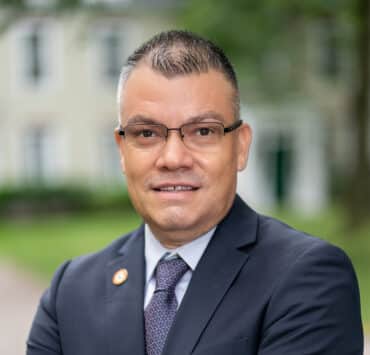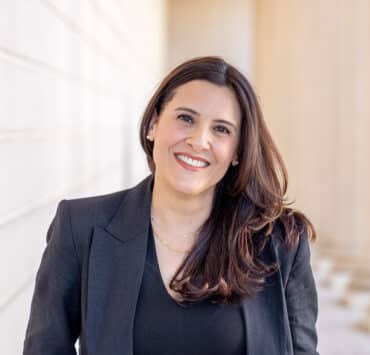|
Getting your Trinity Audio player ready...
|
Lynette Montoya has a vision for future Latino Hotel Association conferences. The president and CEO of the LHA since 2016 has helped empower entrepreneurially-minded Latinos to consider the hotel business. To fulfill her vision, Montoya first needs to reach more Latinos who are potential owners or investors to attend next year’s LHA Conference. (This year’s conference just finished up in Dallas.)
“Latino entrepreneurs, real estate investors, and others in commercial real estate need to know about this,” Montoya says, “I want to see Latinos build generational wealth and I want to connect people to make a better future for all of us. If you have the entrepreneurial spirit or have thought about different ways to diversify your own portfolio, no matter how small or large, at least come here for the education.
“You may not know this is you. Maybe you’ve worked for a corporation for a long time. Maybe you have a solid 401(k) and a retirement plan or created a small portfolio of real estate assets. But if you want to pursue a more potentially lucrative or interesting route, I’m talking to you.”
This past September’s LHA conference was a success, the president says, but she has an even bigger vision for future conferences. Montoya has attended countless investment and real estate conferences where, amid presenters, lunches, and general socializing, she’s seen something she’d love to see at LHA events: a beehive of deal-making activity. She’s watched hotel brokers, finance professionals, management companies, and other players presenting in small groups, trying to put together complex deals with multiple stakeholders. The conference events seemed secondary to the deals people were making.
“So many individuals, groups, and companies will lay down $8,000 for a conference and lodging and meals, basically, to have a centralized location to put deals together,” the president explains. “The LHA conference is $499 and includes education on all parts of hotel ownership, including meeting and having access to hotel brand executives and other experienced hotel owners. Therefore, we’re going to have to extend the event to two days.
“But what we’re missing, and what I want to build, is that connection point and flurry of activity. I want a ‘deal room’ with couches and tables where there are connections being made, deals getting locked in, and long-term wealth opportunities being created. I’m not going to step down from this position until I see that through.”
Montoya was greatly inspired by the Asian American Hotel Owners Association, whose members have amassed ownership of 60 percent of the hotels in the United States according to their own statistics. Montoya has attended their conferences and has seen entrepreneurs who bring their entire families because their families are the business. She wants to foster the same sense of ownership and opportunity for Latinos.
“I want to see Latinos build generational wealth and I want to connect people to make a better future for all of us.”
Lynette Montoya
For Latinos to more readily engage in the hotel industry, the LHA is now offering comprehensive educational opportunities, Montoya said. For example, LHA has announced LHA 101, 201, and 301 courses that guide aspiring hotel owners through the industry.
“Our goal is to cover all of the issues that can be really scary for people trying to learn the industry,” Montoya says. “We’ve always referred people to educational opportunities, but now we are providing them ourselves. This is the program we needed to help advance our cause and I couldn’t be more excited about it.”
LHA 101 is an introduction to hospitality industry operations, focusing on structure, key measurements and metrics, and industry resources. LHA 201 moves into hospitality finance, including analyzing and interpreting essential financial statements and benchmarking for revenue and payroll. Students can learn a litany of industry-specific acronyms, like ADR (Average Daily Rate) or STR (Smith Travel Research, a reporting system that provides analysis of other properties in the area).
Finally, LHA 301 covers investment packages used to acquire hotel properties, how to select the appropriate business entity, understanding the ideal debt and equity structures, and even tips for loan negotiations.
Each course will include testimonials from Latino hotel owners and operators about deals they’ve made, raising capital, pitfalls of certain kinds of agreements, and other inside knowledge that will help give Latinos a leg up should they decide to enter the industry.
Montoya says there’s no reason for prospective entrepreneurs to wait to start learning. LHA’s courses are available online, and by next September you could be well prepared to make a deal go down at 2025’s conference. For more information about the current state of Latino hotel ownership, check out the Latino Hotel and Entrepreneurship Investment Report—and maybe start planning to find your own seat in the “deal room.”

